Cheaper, cleaner ride ahead
SINGAPORE — Students from the National University of Singapore’s (NUS) University Scholars Programme (USP) have successfully converted a motorcycle from a petrol-based engine to an electric one that may one day extend the usage of old bikes while driving down usage costs.
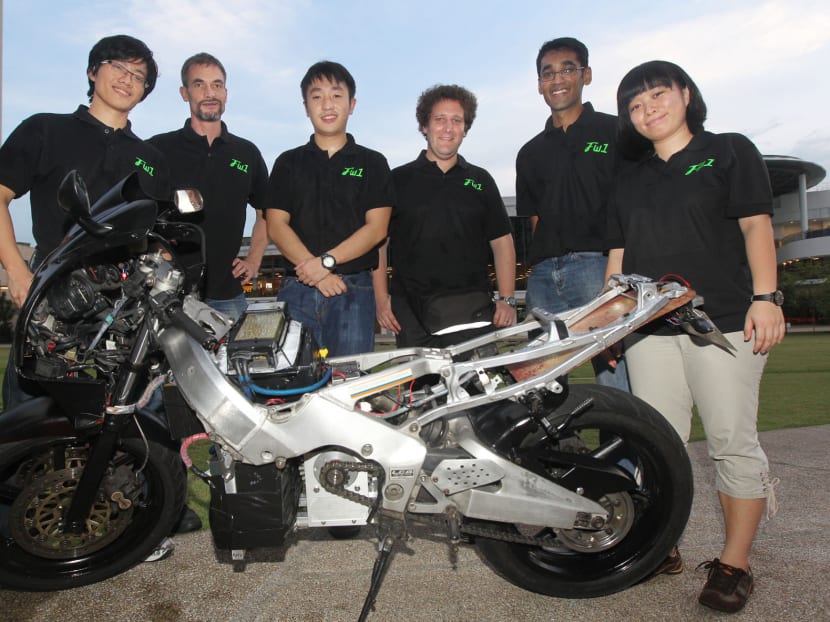
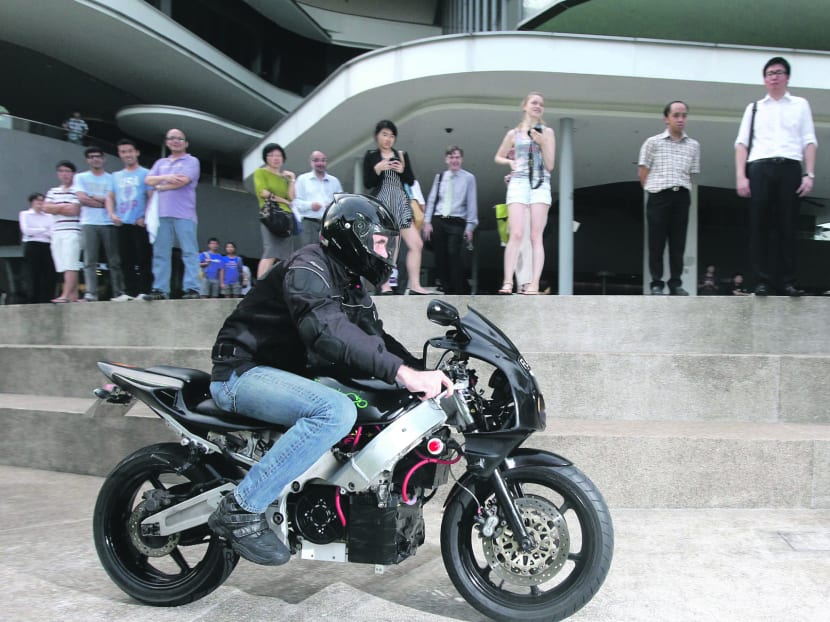
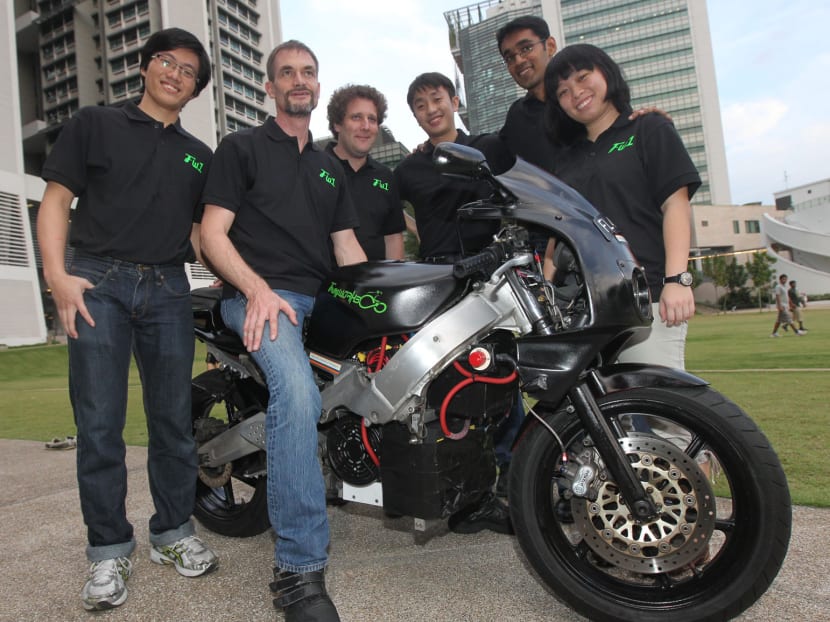
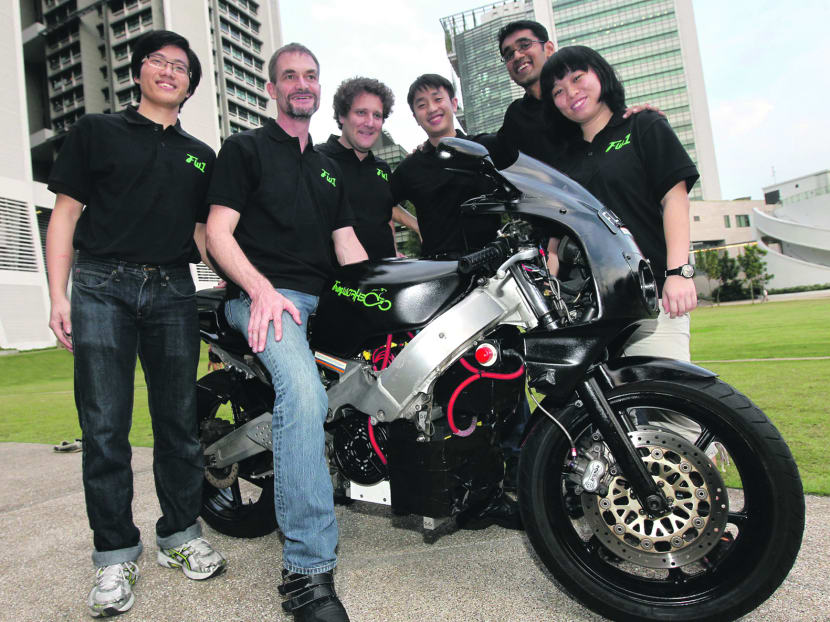
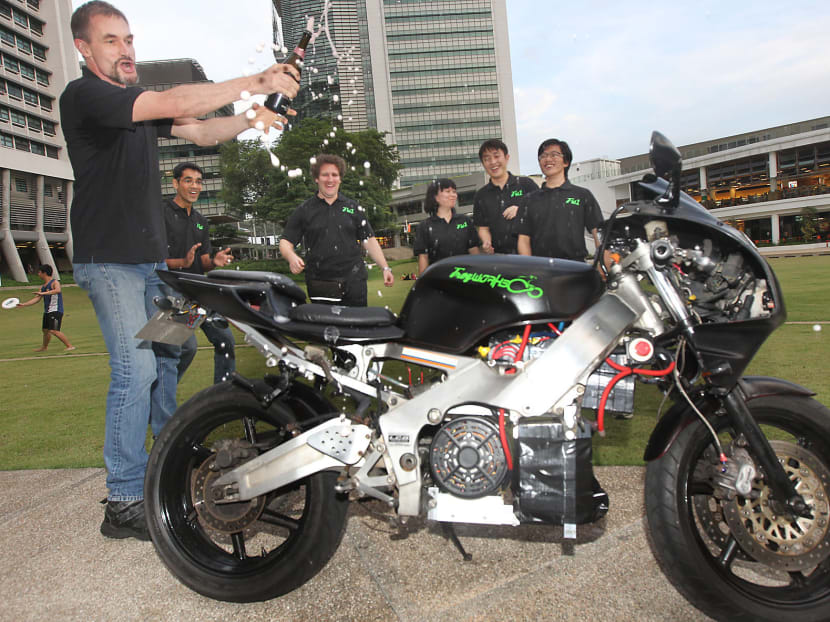
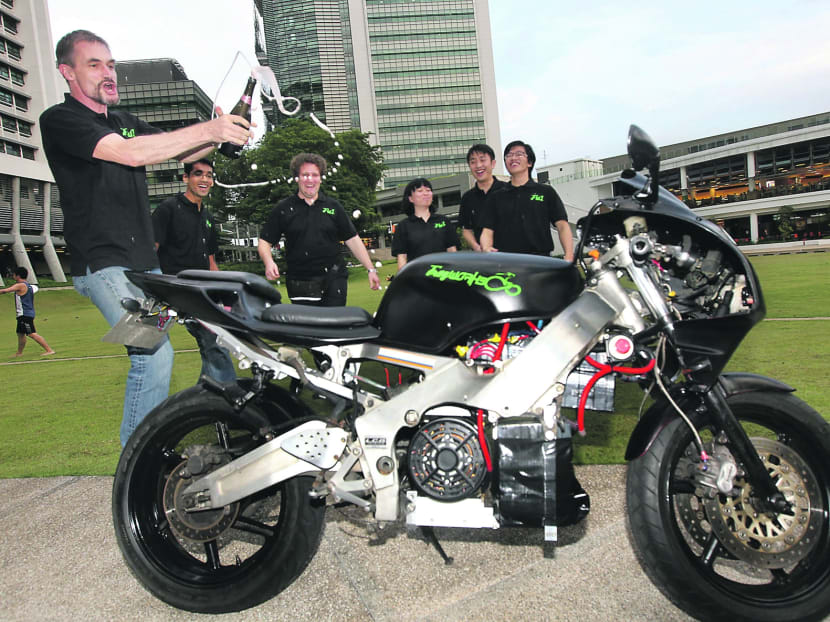
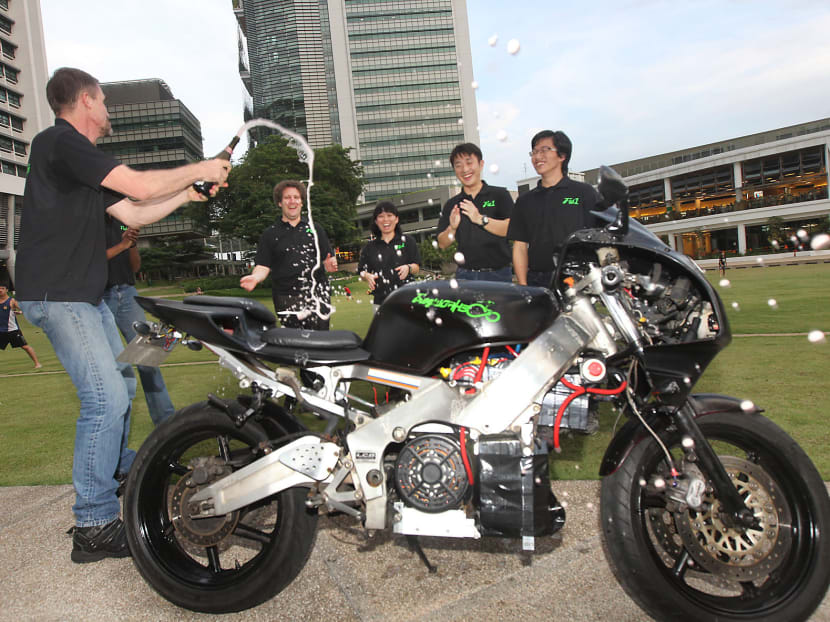
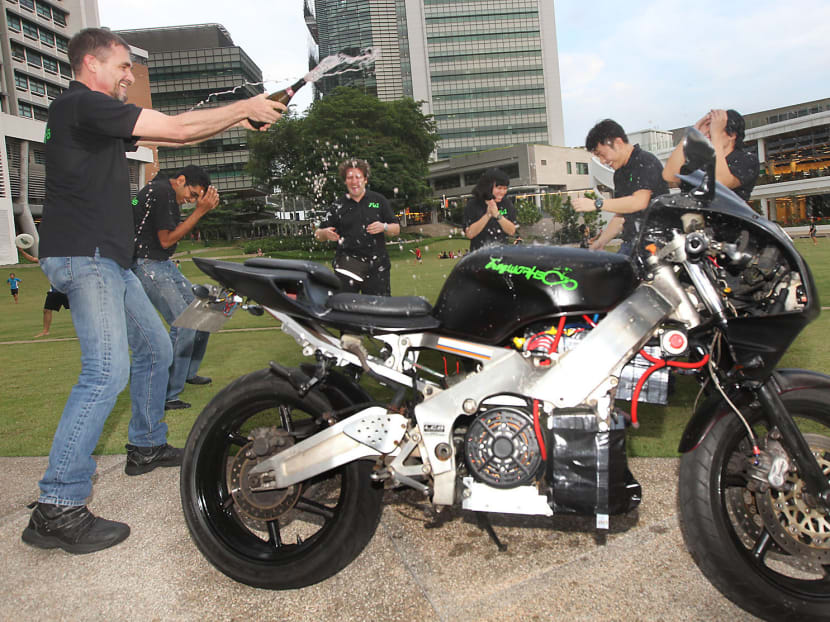
SINGAPORE — Students from the National University of Singapore’s (NUS) University Scholars Programme (USP) have successfully converted a motorcycle from a petrol-based engine to an electric one that may one day extend the usage of old bikes while driving down usage costs.
The students estimate that it currently costs the average motorcyclist — who rides about 38.5km per day at an average speed of about 69kmh — about S$121.11 in fuel per month. With the electric motor, it would cost about S$29.79.
The project, a collaboration between the USP and the Engineering Design and Innovation Centre at NUS, paves the way for the possibility of large-scale conversion of motorcycles, as the world shifts towards greener technologies.
The team of six — Mr Shreyas Rao and Ms Pek Yang Xuan, who are both 20, Mr Brian Teo and Mr Aloysius Seah, who are both 22, along with supervisors Associate Professor Martin Henz and Dr Joerg Weigl — started their project in May last year.
They have designed a frame that can be mass-produced, which includes adaptable mounting options, an electric engine and two slots for batteries. The frame can be mounted in a day by two mechanics, and costs about S$3,500 — or even less if economies of scale are reaped.
While the current prototype, a 10-year-old Honda CBR400RR, has two lead-acid packs that take it a distance of around 25km to 50km, batteries can be swapped to allow it to run longer. This also means that, in the future, the batteries could be charged in the office or at home.
In terms of environmental impact, a converted motorcycle, over its eight-year life cycle would use 72 per cent less energy and produce 45 per cent less carbon dioxide. Those numbers, however, depend on the “energy mix” supplying power to the batteries.
The NUS team hopes to secure more funds to continue its research, so that longer-lasting lithium polymer battery packs and fully interchangeable battery packs can be tested.






